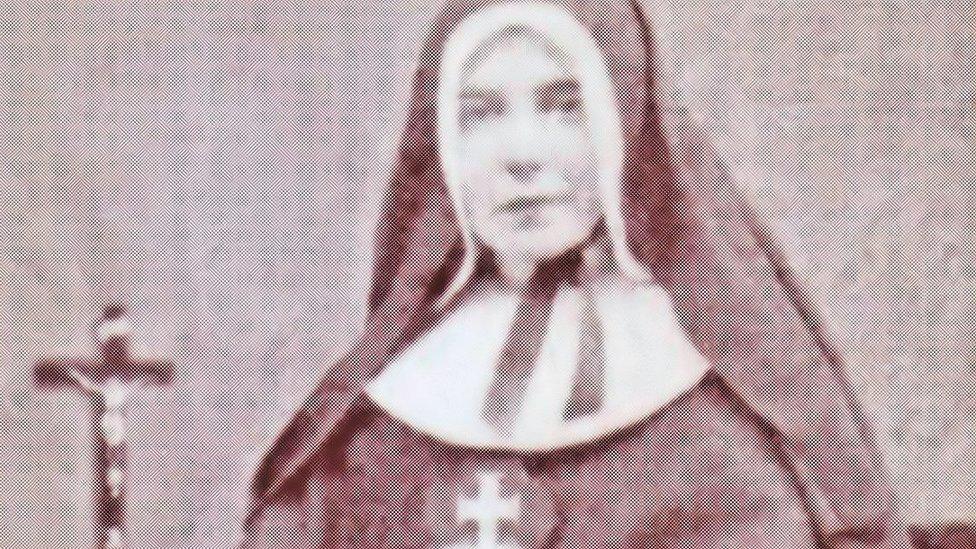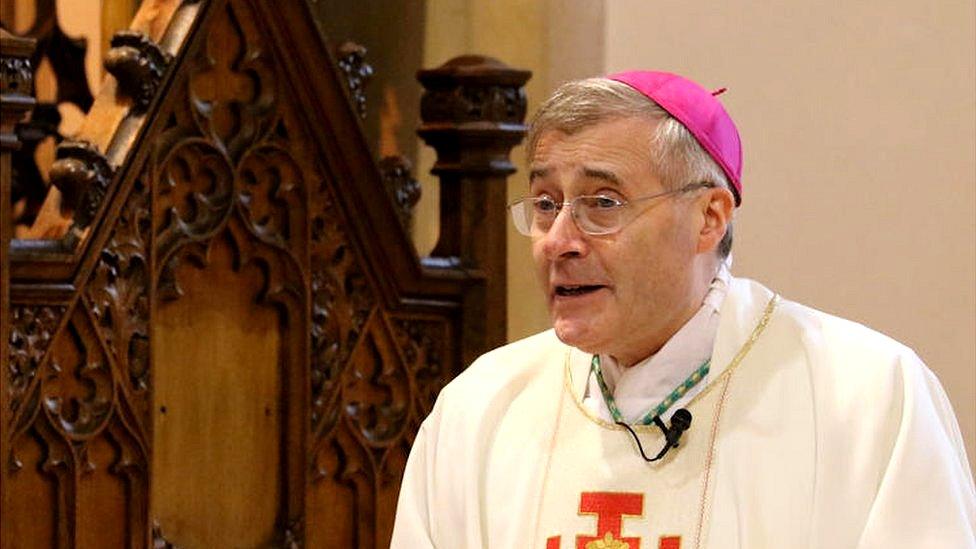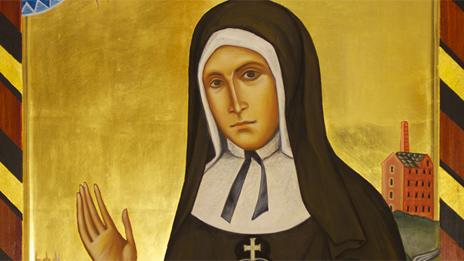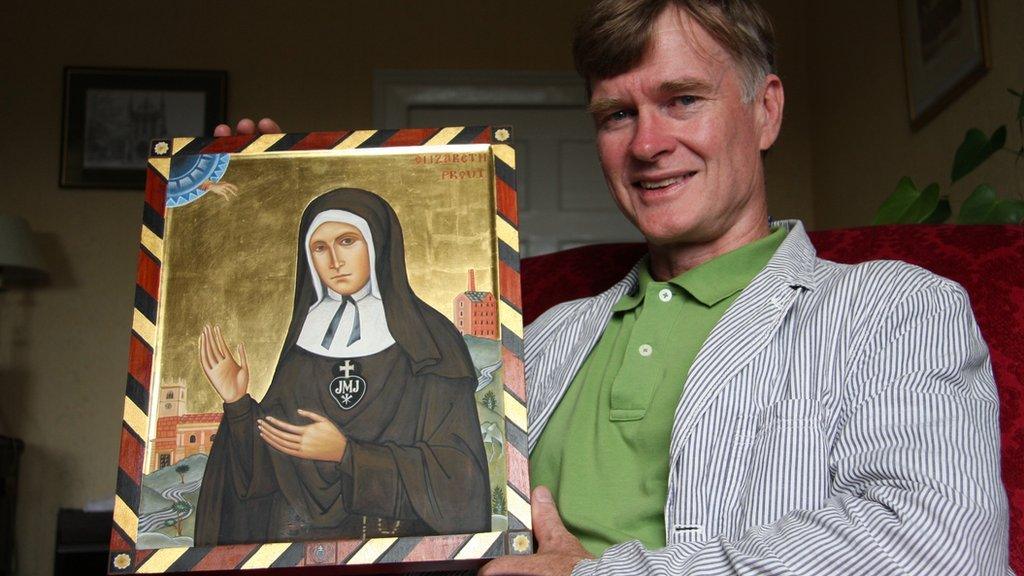Elizabeth Prout: Canonise 'dangerous slum' nun call
- Published

Sister Elizabeth Prout opened schools for children in poverty and homes for destitute women
A bishop has called for the canonisation of a nun who worked in a Manchester slum, described as one of the worst in 19th Century England.
The Vatican has studied the life of Sister Elizabeth Prout, who worked in Angel Meadow at the same time Karl Marx and Friedrich Engels were in the city.
Bishop of Shrewsbury the Rt Rev Mark Davies said: "They observed the poor but she dedicated her life to them."
His message came at the start of a year marking the bicentenary of her birth.
The bishop added the Shrewsbury-born nun had "risked violence herself to enter Manchester's darkest and most dangerous streets in order to reach those in greatest need".
Elizabeth Prout had been living in Stone, Staffordshire, when she was inspired to convert from Anglicanism to be a Roman Catholic after hearing Italian Missionary Father Dominic Barberi preach in the 1840s.

Bishop Davies said Sister Elizabeth "risked violence herself to enter Manchester's darkest and most dangerous streets"
Her new faith saw her move to Manchester, teaching mill workers and Irish immigrants fleeing the potato famine.
Prout lived in Stocks Street, near Angel Meadow, which was dubbed "Hell On Earth" by Engels and was near the infamous mass grave of 40,000 paupers.
One writer described the area as a place where "very often are the bones of the dead exposed and carried away and a human skull has been kicked about for a football on the ground".
She opened schools for children in poverty and homes for destitute women and was ahead of her time in teaching women crucial skills to earn their own livings.
Prout founded an order of nuns which later became known as the Sisters of the Cross and Passion which by the time of her death in 1864 aged 43 had gained papal approval.
Her biographer Sister Dominic Savio said Pope Francis had been expected this year to have given her the title Venerable, the first step to Roman Catholic sainthood, but the pandemic had slowed down the Vatican's bureaucracy.
"I don't think we will be seeing any movement until the pandemic has eased," said Sister Savio.
Prout's body is in the same shrine as Father Barberi, at the Church of St Anne and Blessed Dominic, St Helens, alongside Father Ignatius Spencer, an ancestor of Princes William and Harry.
- Published19 September 2012

- Published19 August 2012
